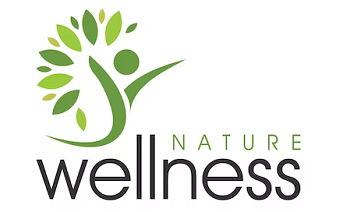Many medical graduates dread the residency stage. Given the current heavy burden on healthcare systems, much is expected of future physicians. Although residency offers invaluable personal and professional opportunities, the tensions associated with the duties and responsibilities associated with it can lead young health professionals to burnout if they are not careful.
In his fourth edition medical residents of Staying Human during Residency Training: How to thrive and survive after medical school (University of Toronto Press), Allan D. Peterkin provides medical graduates across Canada with information to prepare to the perils of residency as well as valuable tips that will help them recognize problems and overcome challenges. Here are Dr. Peterkin’s responses to questions we emailed him about his book:
What is the most common mistake medical graduates make when choosing a residency program?
A: I think most students are quite careful when choosing their specialty and location for their residency. However, I would advise them to become better informed on various issues, such as the programs available to residents to ensure their well-being, compliance with the rules relating to the frequency of call periods or the mentoring programs offered. I would also tell them not to let money become their priority, because over time their interest and compassion might erode.
Q: In the fourth and fifth chapters, you discuss ways to maximize support, find balance and protect personal and professional relationships, highlighting what residents can do to help themselves, including recognize the warning signs and symptoms of problems, have prevention strategies and form support groups. Do you know if residents follow your advice?
A: I have the impression that the residents take more care of each other and compete less fiercely than before. During my residency, the most difficult thing was to pretend that we knew everything and that we were impervious to stress and overwhelm (what some called the mask of competence).
There is a good example of this evolution at the University of Ottawa. Based on the principle of “neighborhood watch”, residents are actively encouraged to watch over each other, offer support and take turns when needed. It is by no means a question of imposing oneself, but rather of offering one’s help.
As a new generation of attending physicians have come to aspire to a certain balance in life, instead of aiming for pure stoicism, they resent their students less when they seek to do the same.
Furthermore, I believe that the increase in the number of women in medicine has shaken up the “macho” model and given training a touch of humanity, for both men and women.
Q.: In the eighth chapter, you deal with the ethical challenges with which residents sometimes have to deal and you propose possible solutions. Do you think these challenges are the same as when your book was first published?
A.: Ethical challenges are growing exponentially, at the same rate as technological advances. These challenges are particularly great at the beginning and end of the life cycle, from extremely preterm infants to the elderly who are waiting in increasing numbers for transplants or other advanced procedures.
The possibility of cloning human beings or making clinical use of stem cells was not on the menu when I trained or when the first edition of the book came out in 1989.
Recently, “new” infections like SARS have forced us to review emergency procedures and decision-making processes around quarantine and access to care. We also now know that pharmaceutical companies block access to studies leading to negative results and that medical schools and research institutions have made it “complicated” to collaborate with industry, which is not without fallout. for student learning. Even today, these measures are not completely crystal clear in most medical schools in North America.
I have also noticed that the improvement of methods of analysis and investigation tends to distance us from our patients. Some residents do “rounds” of analyzes and tests instead of going to the patient’s bedside.
Q: How do you think the deregulation of medical school tuition in Canada is affecting graduates of medicine who are about to start their residency?
A: Debt is one of the biggest stressors that graduates of all professions have to deal with. In medicine, debt can cause residents to opt for a lucrative specialty at the expense of a less remunerative field they love, such as family medicine.
They may have a tendency to overwork themselves at the start of their career, thus establishing an imbalance which may eventually lead to professional burnout or affect their married life. Extreme indebtedness can push the doctor to reify his relationship with the patient. I hear residents talk about business plans, “clients” and “referrals” of patients… all terminology borrowed from the trade.




